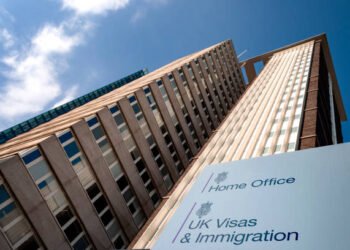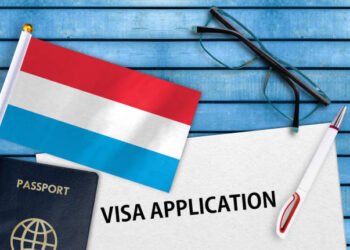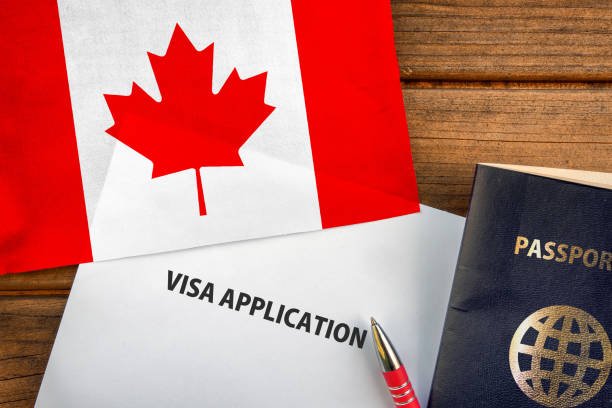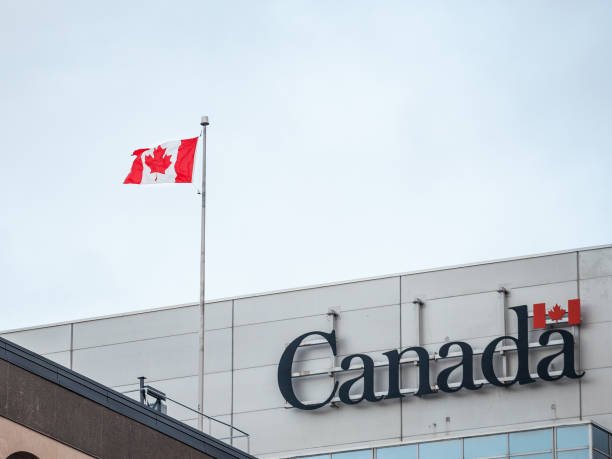Dreaming of studying in a world-class university with centuries of academic excellence, vibrant multicultural cities, and career opportunities that stretch across the globe? The UK isn’t just offering you a degree, it’s offering a future. But before you pack your bags and buy that plane ticket, you need to understand which UK student visa is right for you. Let’s break it all down, so your academic dreams don’t get lost in paperwork.
Advertisement
Why Study in the UK?
Globally Recognized Education System
The United Kingdom has consistently been chosen as a top destination for international students due to its globally respected educational institutions. Universities such as Oxford, Cambridge, and Imperial College London have offered world-class teaching and research opportunities. Degrees from the UK have been recognized and accepted by employers worldwide, giving students a competitive edge in the job market.
Wide Range of Programs and Institutions
A diverse array of courses across various disciplines has been offered by over 130 universities and institutions in the UK. Students have been able to choose from undergraduate, postgraduate, research, and foundation programs based on their academic goals and interests. Specialized institutions have catered to subjects such as medicine, law, engineering, and art.
Scholarships and Financial Aid
Multiple scholarships, grants, and financial aid schemes have been provided by both the UK government and educational institutions. Programs like Chevening Scholarships and Commonwealth Scholarships have allowed deserving students to pursue their academic dreams without financial burden. University-specific merit-based and need-based scholarships have also been made available.
Advertisement
Post-Study Employment and Pathways to Residency
Opportunities to remain in the UK after completing a degree have been increased through the Graduate Visa (Post-Study Work Route). Eligible students have been allowed to work or look for work without sponsorship. This pathway has led many international graduates to eventually transition to a Skilled Worker Visa or apply for permanent residency.

Types of UK Student Visas Available in 2025
Student Visa (Formerly Tier 4)
The main visa for international students enrolling in long-term academic programs has been the Student Visa. Eligibility has required an unconditional offer of admission from a UK institution, proof of English proficiency, and financial ability to support living and tuition expenses. The visa has been issued for the duration of the course with an additional buffer period.
Child Student Visa
Children aged 4 to 17 who have been accepted into an independent fee-paying school in the UK have applied for the Child Student Visa. Parental or guardian consent, proof of financial support, and enrollment confirmation from a licensed school have been essential requirements. Children under 12 must have had arrangements for care in place.
Short-Term Study Visa
This visa has been intended for international students who plan to study English language courses lasting between 6 and 11 months. It has not been applicable for degree-level programs or academic qualifications. Work has not been permitted under this visa, and extensions have not been allowed beyond the stated duration.
Graduate Visa (Post-Study Work Visa)
Graduates who completed eligible courses at a licensed UK institution have been granted this visa. The Graduate Visa has allowed former students to stay in the UK for two years (or three years for doctoral graduates) to work or seek employment. It has not required employer sponsorship and has served as a bridge to longer-term visa routes.
Visitor Visa for Study Purposes
For short-term courses, summer schools, and university taster programs lasting less than 6 months, the Standard Visitor Visa has been used. This visa has not permitted work or the continuation into longer study programs without leaving the UK and reapplying under a new visa category.

Eligibility Requirements for Each Visa Type
Age and Educational Requirements
Applicants for the Student Visa must have been at least 16 years old and accepted into a recognized academic program. For Child Student Visas, age must have ranged between 4 and 17, with confirmation of admission from an independent school.
Confirmation of Acceptance for Studies (CAS)
All applicants under the Student Visa route must have received a Confirmation of Acceptance for Studies (CAS) from a licensed sponsor institution. The CAS has been a digital document containing personal and course details, unique reference numbers, and fee confirmation.
English Language Proficiency
Proof of English language skills has been a mandatory requirement. IELTS, TOEFL, PTE Academic, and other UKVI-approved tests have been accepted. Exemptions have been provided for citizens of certain English-speaking countries or for those who have studied previously in English.
Proof of Funds
Students must have shown evidence of sufficient funds to cover their tuition and living expenses. The financial requirement has varied depending on the location of the institution (e.g., London vs. other cities) and the course length. Bank statements, sponsor letters, or student loan documents have been accepted as proof.
Tuberculosis (TB) Test Results
Applicants from specific countries have been required to undergo a tuberculosis screening test as part of their application process. A certificate confirming a negative result has been submitted with the visa documents.
Step-by-Step Application Process
Offer Acceptance and CAS Issuance
A formal application must have been submitted to a UK educational institution. Once an unconditional offer was received and tuition deposits were paid, the institution issued the CAS number, which is valid for 6 months.
Document Preparation
Applicants prepared necessary documents, including:
- Valid passport
- Academic transcripts and certificates
- Proof of funds
- English test results
- TB certificate (if applicable)
- Parental consent (for Child Student Visa applicants)
Online Application Submission
Applications have been submitted through the official UK Visas and Immigration (UKVI) website. A visa type has been selected, and the form completed with accurate information. The Immigration Health Surcharge (IHS) and visa application fee have been paid at this stage.
Biometrics and Visa Interview
An appointment at a local visa application center has been booked for fingerprinting and photo submission. In some cases, interviews have been conducted to assess the applicant’s credibility and intention to study in the UK.
Decision and Passport Collection
Decisions have generally been made within 15 working days. Priority and super-priority services have offered faster processing for an extra fee. Once approved, the visa vignette has been affixed to the passport and a Biometric Residence Permit (BRP) collected upon arrival in the UK.
Cost of Applying for a UK Student Visa
Application Fees
As of 2025, the standard Student Visa fee has been approximately £490. The Child Student Visa and Short-Term Study Visa have had similar costs.
Immigration Health Surcharge (IHS)
An annual healthcare surcharge of £776 has been paid by students to access the UK’s National Health Service (NHS). The total amount has depended on the length of the course and visa validity.
Additional Costs
Additional expenses have included:
- Document translation and notarization
- Visa application center service fees
- Courier and SMS notification fees
- Travel and accommodation for interviews
Work Rights While on a UK Student Visa
During Term-Time
Student Visa holders have been permitted to work up to 20 hours per week during the academic term. These hours could be spread across multiple employers.
During Holidays
Full-time work (up to 40 hours/week) has been allowed during official university breaks. Internships and placements related to the course of study have also been permitted.
Restrictions
Self-employment, permanent jobs, and professional sports or entertainment roles have not been allowed under the Student Visa.
What Happens After Graduation? Post-Study Options
Graduate Route
Graduates have been eligible to apply for the Graduate Visa within 60 days of receiving their final academic results. The visa has been granted for 2 years, or 3 years for PhD holders, allowing employment without sponsorship.
Skilled Worker Visa Transition
If a graduate has been offered a skilled job with an approved UK employer, switching to the Skilled Worker Visa has been permitted. A minimum salary threshold and skill level requirement have applied.
Start-Up and Innovator Visas
Entrepreneurial graduates with innovative business ideas have explored Start-up and Innovator Visas. These routes have required endorsement from approved bodies and detailed business plans.
Common Reasons for Rejection and How to Avoid Them
Incomplete Documentation
Failure to submit all required documents, such as CAS, financial proof, or academic records, has led to rejections. A checklist provided by the UKVI has been followed carefully.
Language Proficiency Not Met
Applicants who did not meet the minimum English language score or failed to provide valid test results have had their applications denied.
Fraudulent Documents
Use of fake or altered documents has resulted in bans from future visa applications. All information provided has needed to be genuine and verifiable.
Non-Genuine Intent to Study
Applicants who could not demonstrate genuine intent to study, or who failed visa interviews, have been refused. Strong academic background and clear study goals have helped strengthen the case.
Useful Resources and Support Services
Official Government Sources
University International Offices
Each institution has provided visa and immigration guidance, pre-arrival webinars, and documentation support to enrolled students.
Legal and Immigration Consultants
Licensed immigration advisers have assisted with complex cases, appeals, and documentation verification.
Online Forums and Student Communities
Platforms like The Student Room, Reddit, and university Facebook groups have served as peer-to-peer support spaces for applicants and current students.

Conclusion
Before, Inside, and beyond 2025, the United Kingdom has continued to serve as a beacon for international students seeking high-quality education and global career opportunities. Through various visa options, from the Student Visa to the Graduate Route and Child Student Visa, students from across the globe have been offered legal pathways to study, work, and build their future in a world-class academic environment.
While the visa application process has required thorough preparation; such as securing a Confirmation of Acceptance for Studies (CAS), meeting financial and language requirements, and adhering to UKVI guidelines, it has ultimately paved the way for countless students to achieve their academic and career aspirations.
By understanding the available visa types, eligibility criteria, work rights, and post-study options, international students have positioned themselves for a smooth transition into life in the UK. Access to healthcare, safe living conditions, and a multicultural society have added further value to the educational journey.
With careful planning, timely application, and guidance from official sources and university support teams, the dream of studying in the UK can indeed be turned into a life-changing reality. The path may be detailed, but it has been well-marked for those determined to succeed.
The UK is ready to welcome you. Begin your journey today, and let your future be shaped in one of the world’s most dynamic learning environments.



















